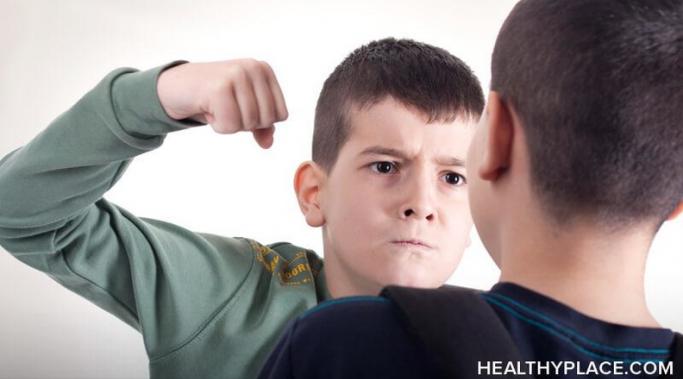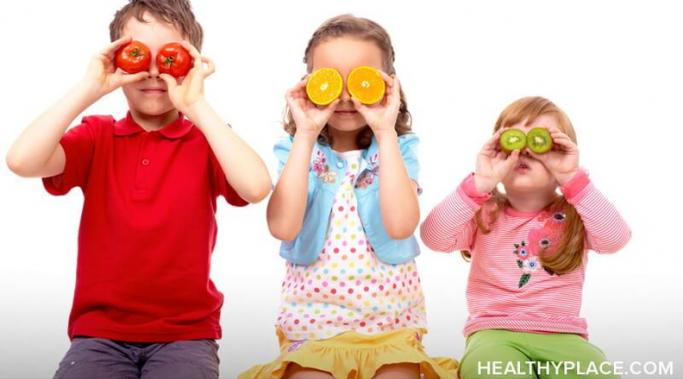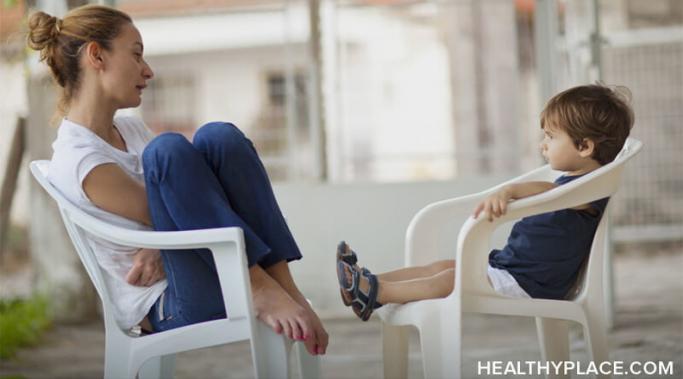It's important to know how to manage your child's problem behaviors caused by mental illness when you're not there. When your child struggles with mental illness, going into public can be terrifying. More terrifying is wondering what your child is doing in public when you're not there (Parenting Children with Behavior Problems). One of my son's diagnoses is attention-deficit/hyperactivity disorder (ADHD). I'll discuss more specifics about parenting children with ADHD throughout March, but for now, just know that ADHD sometimes makes children socially awkward and they display problem behaviors that you need to manage even when you're not there.
Behavior Issues
Raising siblings of children with mental illness is challenging. My husband and I have spent so much energy on my 17-year-old son Bob who lives with bipolar disorder and social anxiety, his younger sister, Hannah, is sometimes neglected. Hannah, the sibling of a child with mental illness, has witnessed multiple crises in our family. She has been the trigger or target of her brother's outbursts. It is no wonder she is struggling with mental health issues of her own.
Two weeks ago my son Bob told me he got a Saturday detention for skipping gym class. He said they were swimming and he didn't want to swim. Later, I went online and discovered Bob was failing physical education (PE). This was maddening to me since Bob was an athlete and strong swimmer. I knew instinctively this had nothing to do with swimming and everything to do with my son's mental illness. The screaming question in my head was, "What do I do now?"
As parents of children with mental illness, we witness extremely bad behavior. We know it is not okay to be disrespectful or put holes in walls. Yet, traditional discipline methods don't work. We become desperate for effective parenting tools for our kids (The Challenge of Difficult Children Homepage). The key is to understand what is driving the bad behavior. Is it the kid or the mental illness?
I worry my son will end up in jail. This is ironic because my son is a rigid rule follower. He attends a small college prep high school and plays basketball. He's a good kid. But, he's a good kid with a serious mental illness.
The moment my 12-year-old son ran out the front door, I locked it. The temperature that evening was 17 degrees. Bob was wearing basketball shorts, a tank top and no shoes. Earlier he was playing with knives and making threats. My mind struggled as he banged on the door begging me to let him in. Finally, I unlocked the back door to the basement and told him to go around the house. He slept downstairs (behind a locked door) while my family slept safely upstairs. The next day Bob was diagnosed with bipolar disorder.
Today I read an article introducing me to positive psychology. The article was co-written by Martin P. Seligman who proposed looking at a person’s strengths rather than weaknesses. When you apply this to a special needs child, it is about playing to the child’s strengths.
Both personally and professionally, I find that there are several benefits to playing to your child’s strengths. Check them out below.
Hiya Parents! As 2013 ends, I've been thinking about the past year and the different ways Bob, my son with ADHD, has grown. I've also been reviewing the past year for the top ten posts that you've enjoyed. As I went through them, I realized that I've grown a lot as a parent. So much of our time is spent ensuring that our kids are growing up well that we forget that we grow, too. So here's a round-up of my top ten posts just to inspire you to have an amazing 2014 with your special needs child! Thank you so much for making it a great 2013. Happy New Year!
What’s a free pass, you say? A free pass is something that allows children to enjoy the holidays without worrying about being punished for negative behavior. Some of the parents I’ve met as a professional feel that it’s okay to take away holiday gifts from kids as punishment for negative behavior. These are parents that tend to take away or punish kids for every little negative thing they do and keep a record of negative behaviors. The truth is kids want to behave well and want to please their parents. The holiday treats can motivate kids to give positive behavior. If you want to have a great holiday season, try these three tips.


